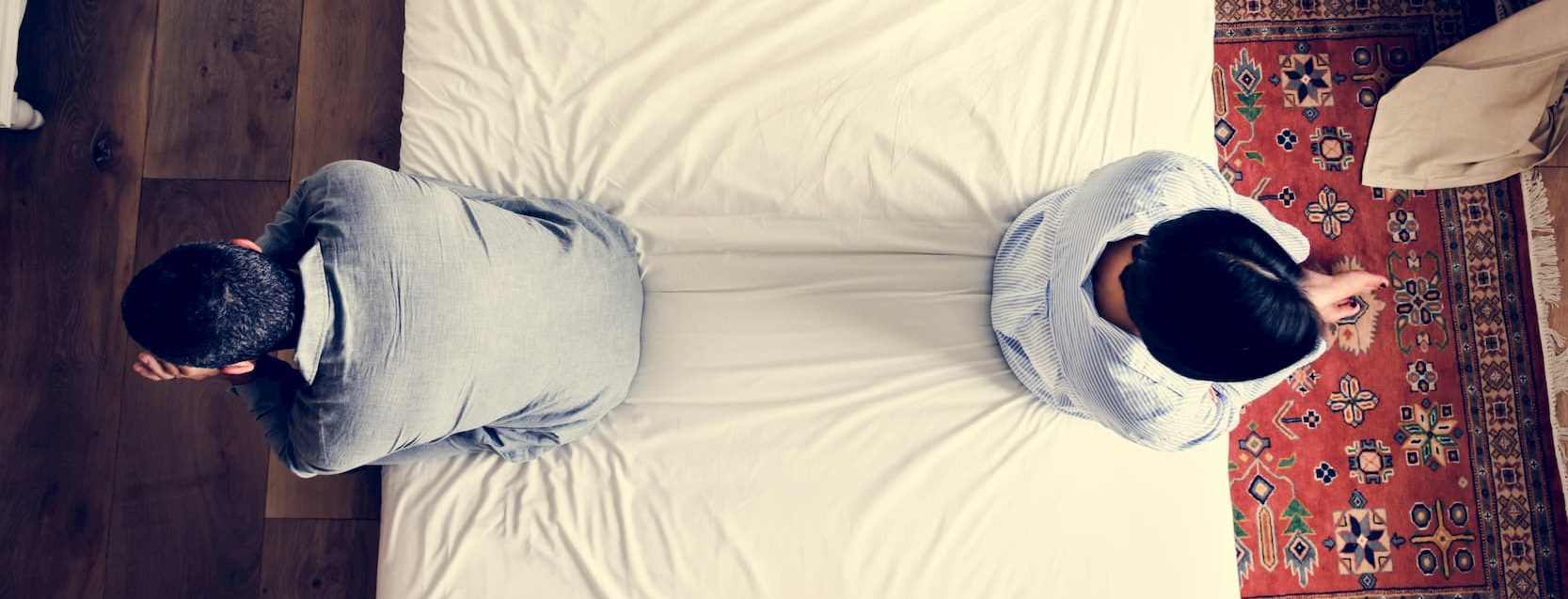At the start of a relationship, it’s easy to confuse being in love with obsession. There is a thin line between obsession and devotion, and most relationships tend to begin with feelings of heightened anxiety and insecurity, so this confusion becomes entirely normal.
Falling in love is risky – it requires a willingness to be vulnerable and let the other person into our inner worlds even though they may hurt us. Although these feelings of anxiety are a natural part of most new relationships, they can turn into love obsession, especially if one of the partners struggles with low self-esteem, attachment wounds, or other mental health issues that influence the relationship.
If you feel like you may be leaning towards obsessive behaviors in your relationships, know that you can change things for the better with guidance from codependency coaching professionals and a little bit of work on your part. Read on to learn more about love obsession and how it can be mitigated.
Can You Be Obsessed And In Love?

Every relationship has an infatuation stage. This is when one or both of the partners think about the other person somewhat obsessively and want to spend each moment with them. If the relationship is healthy, this infatuation will decrease in intensity over time, giving way to mature devotion and commitment.
Unfortunately, this doesn’t always happen. Instead, the infatuation sometimes turns into a full-blown love obsession, which entails controlling behaviors and an overly intense need to protect the “object of love”. In fact, the person experiencing the symptoms of obsessive love disorder may unconsciously control their partner as if they were nothing more than a possession.
How Can You Tell The Difference Between Love And Obsession?
The difference between love and obsession can be a subtle one. This is because obsession has been romanticized for centuries in literature and the media. Additionally, some individuals are extremely skilled at hiding their obsessive urges, expressing only those they believe they can get away with. Nevertheless, there are several subtle or not so subtle signs of obsessive love disorder that you may be able to spot.
What Are The Symptoms Of Obsessive Love Disorder?
In general, love obsession can be characterized by heightened feelings of anxiety and an extreme need for control in the relationship. Some other common signs of obsessive love include:
- Moving the relationship forward too quickly
- Experiencing and expressing overwhelming attraction to the person
- Persistent obsessive thoughts about the other person
- Extreme jealousy and possessiveness
- Wanting to protect the person from everyone else
- Controlling behaviors
- Problems accepting rejection
- Constant validation seeking
- Disrupted relationships with family and friends due to the obsession
- Stalking and reading the person’s private messages
These are only some of the symptoms of obsessive love disorder. Keep in mind that this condition can manifest itself in many different forms, including manipulative behaviors such as love bombing, and often accompanies other mental health conditions, in which case it may be a bit more difficult to spot.
What Causes Obsessive Love Disorder?
There are a multitude of reasons why a person may develop obsessive love disorder. In many cases, love obsession is closely tied to other behavioral health issues, including attachment dysregulation, delusional jealousy, and more.
In general, love obsession and the attachment issues that cause it stem from our childhood experiences. Some of the childhood experiences that may lead to obsessive love disorder include:
- Neglect: when a child is neglected by their primary caregiver or parent, they tend to struggle with forming secure attachments later in life. As a result of the neglect, they may develop insecure or anxious attachments, which may turn into love obsession.
- Abuse: children abused by their parents or caregivers don’t feel safe and loved. Instead, their unmet needs stay with them forever, setting them up for attachment issues such as love obsession. They try to fill the emptiness inside them by obsessing over the love object.
- Low self-esteem: if a person feels worthless and unlovable because of their low self-esteem, they will tend to seek validation and affirmation in their love object. They believe that this person will help fill the emptiness that they can’t fill themselves.
How To Overcome Obsessive Love Disorder?
If you are struggling with obsessive thoughts towards your partner, take a step back and ask yourself: “how is this affecting my life exactly?” If your love obsession is draining for both you and your partner, then you should take the necessary steps to improve the relationship in a healthy way. Here are some tips for dealing with love obsession:
- Reduce or cut off contact
If you wish to save the relationship you’re in, make a conscious effort to give your partner some space. If you feel like it would be healthier for both of you to break up, cut off all contact with them.
- Analyze your feelings
Try to determine what triggers your obsessive thoughts. Do they come up when you are lonely or feel rejected? This will help you better understand and control your impulses.
- Focus on yourself
Love obsession can take you away from your true self. Try to shift the attention from your love object to a hobby of your choosing, perhaps something you’ve always wanted to do but never had the time.
- Find a healthy support network
Surround yourself with people who have your best interest in mind. They will help keep your mind off of your love object and give you a different perspective on the entire situation.
- Seek professional help
If you feel like you can’t deal with your obsessive thoughts on your own, contacting a relationship coach is probably the best course of action. An expert will help you get to the root of your problem and finally heal.
Where Do I Find Good Intensive Codependency Workshops Near Me?

If you are tired of battling with your love obsession, it may be time to take that first step and seek help from a professional relationship coach. With their guidance and support, you will be able to understand and overcome your emotional wounds, which will in turn help you build healthier and stronger relationships.
At PIVOT, we offer expert relationship coaching for individuals struggling with codependency, love obsession, intimacy issues, and many other relationship problems. We also provide insightful relationship guidance in our workshops, where we help couples and individuals facilitate behavioral change. Contact PIVOT today!



















